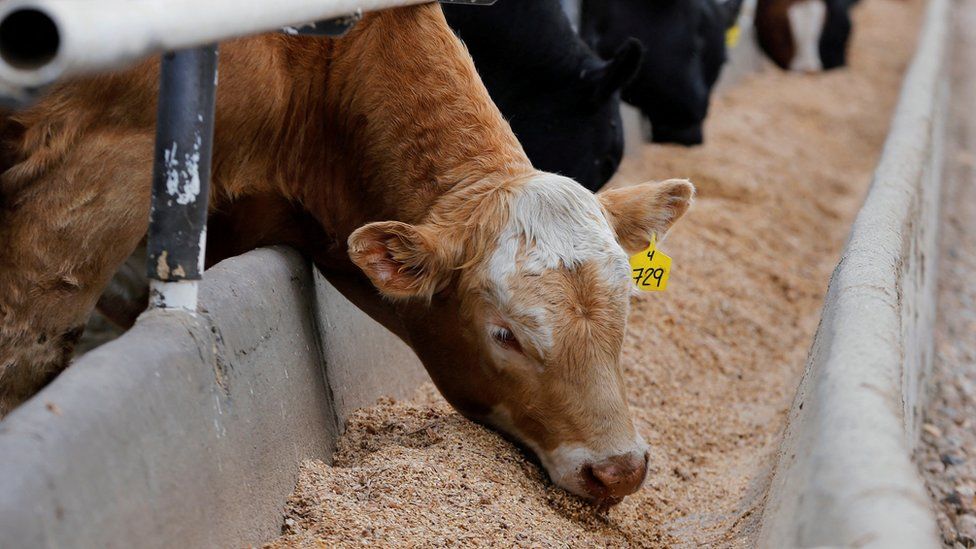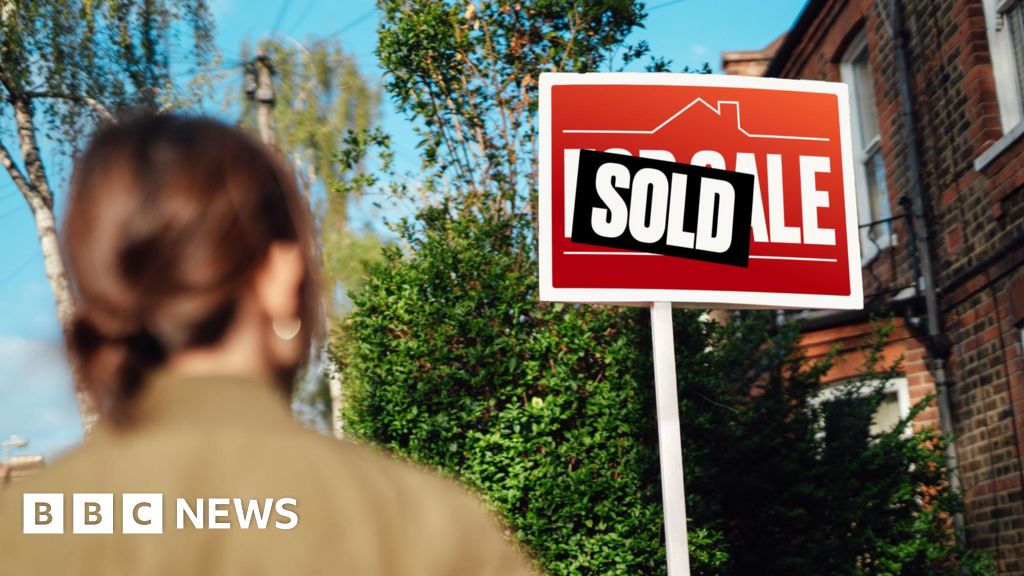ARTICLE AD BOX
 Image source, Reuters
Image source, Reuters
By Tom Geoghegan, Harrison Jones, Tom Espiner & Jessica Murphy
BBC News
The UK and Canada are blaming each other after a dispute over beef and cheese led to the collapse of trade talks.
Negotiations to thrash out a new agreement to replace the one the two countries had when the UK was still in the European Union had been running for nearly two years.
But on Thursday night, it emerged the UK had halted discussions, due to a lack of progress on the two food products.
It could mean tougher trading terms for the UK with a partner that accounted for 1.4% of its total trade in the 12 months to June 2023.
Goods trade between the two countries was worth £19.2bn in 2020, according to the UK government, with UK imports from Canada worth £7.3bn and UK exports to Canada worth £11.8bn.
The implications of the talks collapsing could be felt by consumers and farmers in both countries. Another major sector, cars, will also be affected.
Here's the likely impact on all three areas at a glance.
Beef
- Beef farmers in the UK likely to see the collapse of talks as a big win
- Canada's farming industry has previously voiced its frustration to the UK, saying its meat is disadvantaged under an interim agreement
- Canada's government had been pushing for the UK to relax a ban on hormone-treated beef
British farmers will see the collapse in talks as a big win. The body representing UK farmers, the National Farmers Union (NFU), has been putting pressure on the government to protect its members.
Beef farmers in the UK are already facing competition from those in New Zealand and Australia, whose exports benefit from free trade deals with the UK, meaning tariffs are removed.
Minette Batters, the president of the Nation Farmers' Union of England and Wales, said walking away from the Canadian trade deal would have been difficult, "but it's the right decision".
Canada's government had been pushing for the UK to relax a ban on hormone-treated beef, which its producers say effectively shuts them out of the British market.
The Canadian Cattle Association said the UK had "shown no indication that it is prepared to fully accept Canada's food safety system, which is widely recognised as one of the finest in the world".
It's not the first time that beef has been a sticking point in trade relations between the two nations. Canada's farming industry has previously voiced its frustration to the government, saying that its meat is "severely disadvantaged" under a post-Brexit interim agreement with the UK, and essentially blocked out of that market.
Last year, a coalition of Canadian farming groups protested the UK's accession to the Comprehensive and Progressive Agreement for Trans-Pacific Partnership trade agreement over concerns about that reciprocal access. They demanded that either the UK accept Canada's food safety system or pay compensation for their losses.
Cheese
- The UK is Canada's fifth largest supplier of cheese - but collapse of talks "doesn't look rosy"
- A 245% tariff has been placed on UK cheese exporters since the start of 2024, impacting prices
- Canadian cheese exports are mainly to countries other than the UK
- But there are fears the end of the agreement could "cripple" Canadian cheese importers and small cheese shops
British cheese exports to Canada were worth £18.7m - or 2.4% of total cheese exports - in 2022, according to the Food and Drink Federation (FDF).
That translates to Canada importing a little more than two million kilograms of cheese from the UK (its fifth largest supplier), international trade data indicates.
British firm Coombe Castle International is the largest UK cheese exporter to Canada and about a third of the cheese it exports goes to the country.
Ben Hutchins, its sales and marketing director, told the BBC the firm was "pretty gutted" that talks had been suspended, adding that the company had been exporting to Canada since 1980.
He said the suspension of talks "doesn't look rosy" for cheese exports.
Mr Hutchins said that with a third of the business tied up in Canada after 40 years, it won't be easy to quickly find new markets.
Industry group Dairy UK said the suspension of talks was "regrettable, but there was little indication that Canada was really willing to improve access to the Canadian cheese market".
Since the beginning of the year, UK cheese exporters have seen a 245% tariff placed on British cheese going to Canada, impacting prices.
Image source, PA Media
Image caption,In 2020, prime ministers Boris Johnson and Justin Trudeau agreed to continue trading under the same terms as the then EU agreement after the Brexit transition period ended
"This has put UK dairy exporters at a disadvantage and disrupted trade," a Dairy UK spokesperson said.
"However, exports to Canada are a relatively small part of UK production, and while some UK dairy companies will be faced with a significant commercial challenge, we understand that it will not be insurmountable," the group added.
Meanwhile, Canadian cheese exports, including its cheddar, are mainly to other countries. The UK is not in its top ten markets.
The Canadian Cheese Council of Canada, which represents small and medium-sized cheese importers and their suppliers, said its members had spent decades building relationships with the UK cheesemakers.
The December expiry of the time-limited agreement that allowed the UK to continue to sell cheese without high tariffs has already caused "significant" disruption in the industry and "will cripple cheese importers as well as small cheese shops across Canada", it said.
That, combined with the pause in trade talks, put the efforts spent building those bilateral relationships "in jeopardy", Joe Dal Ferro, council chairperson, told the BBC.
"We feel abandoned by both governments", he said.
Cars
- There are now doubts over whether the UK will be able to continue to sell cars without high import taxes
- If tariffs on UK cars are reintroduced, it would be bad for Canadian consumers, says one trade group
- There are no significant imports of Canadian-manufactured cars into the UK
The UK's biggest goods export to Canada is cars, according to the Department for Business and Trade.
In the 12 months to the end of the second quarter of 2023, exports were worth £745.8m.
A time-limited agreement had allowed the UK to continue to sell cars without high import taxes, but this is now in doubt.
Although the UK's exports to Canada are much smaller than those to the EU, Canada is still "an important market", according to Mike Hawes of trade group The Society of Motor Manufacturers and Traders (SMMT).
"Given the close ties between our two countries, the suspension of trade talks is especially disappointing, and sends a signal that the UK's world-class automotive products are not welcome in Canada," he said.
If tariffs on UK cars are reintroduced "this would benefit no one, not least Canadian consumers", he said, adding: "We urge all parties to get back around the negotiating table."
There are no significant imports of Canadian-manufactured cars into the UK, the BBC understands.
There has been a muted reaction from the Canadian automobile industry to the news.

 11 months ago
18
11 months ago
18








 English (US) ·
English (US) ·